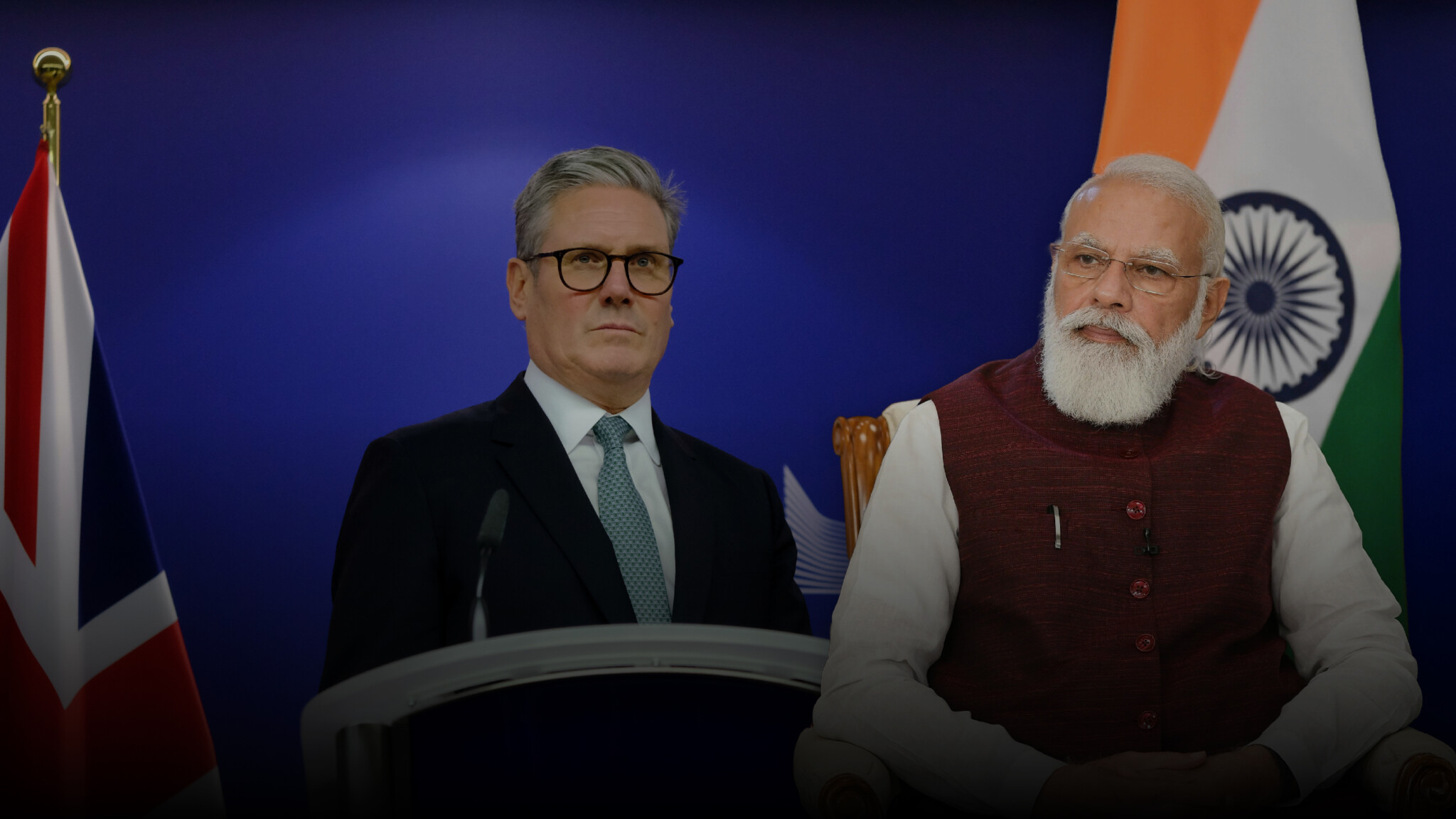
On Monday, Britain secured a long-negotiated trade deal with India, lowering tariffs to add a projected £4.8 billion a year to the UK economy. But it came as a surprise to ministers when the Indian government’s press release celebrated a tax exemption for their migrant workers on new “Skilled Worker” visas. Home Secretary Yvette Cooper was said to have been “kept in the dark” about these concessions made by civil servants, whose hands hover over the wheel of our self-driving state. Just as Keir Starmer says he “gets it”, after voters punished his government at the local elections, he penalizes them with a two-tier tax system.
Indian nationals will be exempt from paying national insurance (pensions and healthcare) tax contributions for the 3-year duration of their visa. This follows Chancellor Rachel Reeves breaking a manifesto pledge in the last budget by raising employer-side national insurance contributions. Reeves’ tax rise will cause a projected 25% of British businesses to make redundancies or restrict new hires. British businesses are also no longer required to advertise roles in Britain to British workers first, thanks to Boris Johnson repealing the one good law passed by Gordon Brown. So, just as they raise the cost of employing British workers, the government incentivizes ethno-nepotistic hiring of cheap Indian labor from abroad. Although Labour argues that 17 other nations have existing tax-exempt temporary visa deals, the political optics remain catastrophic.
Enjoy independent, ad-free journalism - delivered to your inbox each week
India’s Prime Minister, Narendra Modi said the deal will “catalyze trade, investment, growth, job creation, and innovation in both our economies”. But Modi knows he’s pulled a fast one, because few if any Brits will take up his offer to relocate to New Delhi. The promised £2.2 billion a year in wage growth will likely be exclusively for Indian immigrants — just as all private-sector employment growth was after Brexit. India was the largest beneficiary of UK visas in 2023 – 2024 (250,000), and the largest share of UK employment growth (+488,000) between 2021 – 2023. Hence why half of the annual >£9 billion outflow in remittances from Britain’s economy is to India. So integral are remittance services to Britain’s global-poor-box economy, that their tube adverts are part of an emerging “Yookay” aesthetic: alongside the halal-slaughtered animal carcasses, JD Sports tracksuits, and gibberish patois that make up the defaced mosaic of multicultural Britain. Modi’s government knew this, and so were cunning to make more fluid and frequent migration a non-negotiable in order for the deal to close.
This will be a net cost to British taxpayers too. Since Indian migration increased, Indians’ monthly median earnings have declined in real terms to less than that of their British counterparts. We are importing younger but less productive Indian nationals en masse, each of whom cost the taxpayer £465,000 minimum by age 81 (and that’s without considering their dependents). Labour doesn’t appear to have limited these 3-year worker visa recipients’ ability to switch to other visas (e.g. students) in order to extend their stay either. Most absurd of all are the new visas for Indian yoga instructors, musicians, and curry chefs — all jobs that Brits cannot do, of course. These visas will be capped at 1,800; but the number of other visas for which Indians are now eligible under the Global Business Mobility scheme has more than doubled, from 15 to 33. Liz Truss and Suella Braverman refused this request during the last Conservative government. Prime Minister Rishi Sunak didn’t have time to squish on it before calling the general election. Now, Labour intends to pack us to the rafters with cheap Indian labor.
We are importing younger but less productive Indian nationals en masse, each of whom cost the taxpayer £465,000 minimum by age 81 (and that’s without considering their dependents). Labour doesn’t appear to have limited these 3-year worker visa recipients’ ability to switch to other visas (e.g. students) in order to extend their stay either. Most absurd of all are the new visas for Indian yoga instructors, musicians, and curry chefs — all jobs that Brits cannot do, of course.
Obviously, the UK is not suffering from a dire shortage of vindaloo street-vendors. Sending sitar players to busk in London tube stations is not providing an economic boon to Britain; but rather a means for Modi’s Hindutva regime to export political influence. By establishing “living bridges” — demographic and cultural diasporas — in the Anglosphere, India can exert democratic pressure to their advantage. This is especially true in Britain, where, thanks to the British Nationality Act (1948) and Representation of the People Act (1983), citizens of Commonwealth countries such as India or Pakistan can vote in British elections. They do so with the help of British politicians. Parties code themselves as supporting one of the subcontinent’s competing ethnic voting blocks. At the last election, Conservative candidates pledged their support for sectarian Sikh and Hindu manifestos, and Labour pandered to Muslim interests. Meanwhile, a revolving door of Indian- and Pakistani-heritage politicians and civil servants oversaw (coincidental, I’m sure) record rises in immigrants from those regions. This decision will make Britain’s streets a febrile place, should tensions between the two countries continue to escalate after April’s Kashmir terror attack.
Help Ensure our Survival
Purely economic arguments for or against the deal miss this forest through the Ganges. Those on the ostensible right praising it — Brexiteers including Steve Baker, Jacob Rees Mogg, and Lord Hannan — continue to make the fatal mistake of conflating free movement of goods with the free movement of people. While they extol the benefits of Britain exporting more scotch whisky to the ex-Raj, they are reticent about the demographic and cultural churn caused by the Boriswave. They treat Britain as the great machine into which all the world’s fungible cogs can seamlessly slot, rather than a home whose constituent members are irreplaceable. This worldview divide, between the Leave.EU Tories and now-Reform voters was why Brexit was betrayed by the Boriswave of 1.2 million annual third-world migrants, under the banner of “Taking Back Control”. But open borders with India was not “Exactly what Brexit promised” to the 73% of Leave voters whose principal concern was immigration. The Conservative party’s top brass might be having a love affair with Modi’s India, but those living with the consequences of rapid, unassimilable demographic change would like a clean split. The majority of the British public would rather see economic contraction than score another free-trade agreement at the expense of thousands more third-world migrants.
As for Hannan’s claim that “All the stories about Indian students being allowed to stay here for longer, or easier family reunification, or more visas, are sheer nonsense”: to my knowledge, Labour have not prohibited these 3-year working visas from being converted into another kind of visa (e.g. student) either. This is a common practice: with up to 25% of Indian and Bangladeshi student visa recipients dropping out in their first year to disappear into the low-wage Deliveroo gig-economy. India is not on the rumored “Red List” of countries in an upcoming immigration white-paper, whose students are prevented from claiming asylum in Britain when their visas expire. By switching to another visa, these new “Skilled Workers”, already a net-cost to the taxpayer, could extend their stay until they are eligible to apply for Indefinite Leave to Remain. After that, they can receive state benefits, social housing, and a state pension. The bill for the existing Boriswave gaining Indefinite Leave to Remain is already estimated to be £234 billion — or £8,000 per taxpaying household. Starmer just added thousands more potential applicants, while imposing National Insurance rises on businesses hiring British workers.
Britain’s political establishment has predictably sold out its settled host majority again, in pursuit of globalist buzzwords like “international cooperation” and crumbs (0.168%) of GDP growth. New ONS net-migration numbers are released on 22 May. If Sir Keir condemned the Conservatives’ attempt to “turn Britain into a one-nation experiment in open borders”, then donned his lab-coat to continue opening our doors to India, we may soon see the coinage of a “Starmerwave”. But no matter who’s to blame, Britain’s hard-working, home-loving taxpayers will continue picking up the bill. At least they’ll have some cheap socks to keep them warm when they can’t afford to put the heating on.




Comments (1)
Only supporting or founding members can comment on our articles.